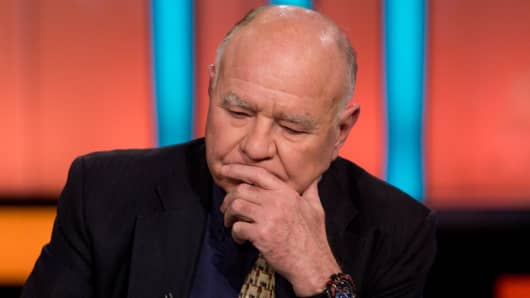Stocks are down about 1% today as uncertainty about the timing of a rate hike as well as global growth continued to push stocks lower.
The Dow was down 170 points after falling more than 200 earlier.
Health care and energy were the greatest decliners in the S&P 500, which traded more than 1 percent lower.
Apple had fallen more than one and a half percent despite news that it sold more than 13 million new iPhone 6s and 6s Plus models in a record first weekend of sales.
The Nasdaq fell more than 1.5% pressured by a 3 percent decline in the iShares Nasdaq biotechnology ETF. The ETF fell further into bear market territory, or more than 20 percent from its 52-week high.
On Friday, the IBB plunged nearly 5 percent for its worst day since easrly 2014. The Dow closed more than 100 points higher, boosted by decent earnings.
“The big concern here is the market has deteriorated to a point that now even the leadership is faltering,” said Lance Roberts, head of Streettalklive.com.
